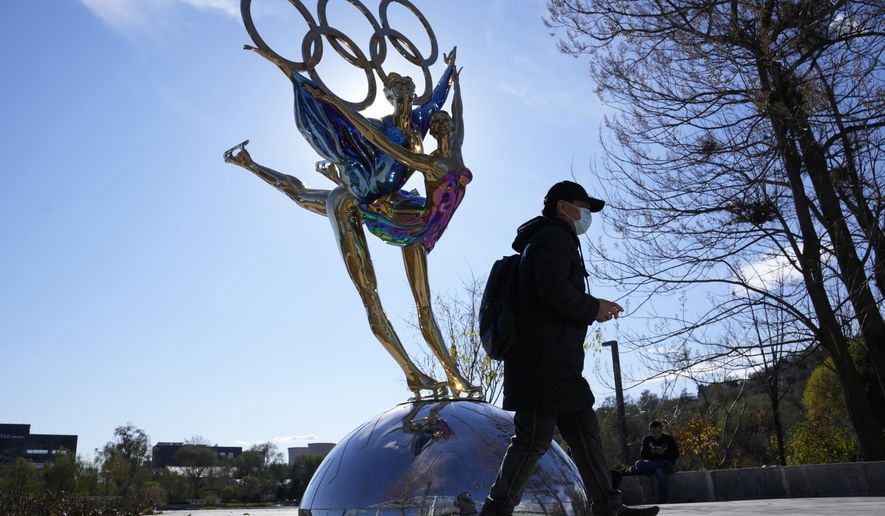BEIJING (AP) — China on Thursday dismissed the decision by Canada and the United Kingdom to join Washington’s diplomatic boycott of the 2022 Beijing Winter Olympic Games as a “farce.”
China is also unconcerned the officials’ absence would spark a chain reaction, while numerous heads of state, government leaders and members of royal families have registered to attend, Foreign Ministry spokesperson Wang Wenbin told reporters at a daily briefing.
The three countries have said they won’t send government dignitaries to the Games that run Feb. 4-20 to protest human rights abuses in China, while New Zealand said it informed Beijing earlier that it wouldn’t be sending any officials due to pandemic travel restrictions but had also communicated its human rights concerns.
Under the diplomatic boycott, the countries will still send their athletes to compete.
Wang said China had not extended invitations to the U.S., Canada or the U.K. and that it “doesn’t matter if their officials come or not, they will see the success of the Beijing Winter Olympics.”
“Sports has nothing to do with politics,” Wang said. “It is they who have written, directed and performed this farce.”
SEE ALSO: U.S.-led diplomatic Olympic boycott snowballs as top Western allies join
China is not only confident there will be no chain reaction, but perceives overwhelming global support for the Games, he said.
“As of now, numerous heads of state, leaders of government and royal family members have registered to attend the Beijing Winter Olympics, and we welcome them,” Wang said. “China is committed to making greater contributions to the international Olympic cause and will offer up a streamlined, safe and exciting Olympics to the world.”
China has vowed to respond to the U.S. with “firm countermeasures” over the boycott, but has given no details on how it plans to retaliate.
Rights groups have called for a total boycott of the Beijing Winter Games, citing Chinese human rights abuses against its Uyghur minority in the northwest Xinjiang region, which some have called genocide. They also point to Beijing’s suppression of democratic protests in Hong Kong and a sweeping crackdown on dissent in the semi-autonomous territory.
Canada’s move came as little surprise in the context of the sharp deterioration in bilateral ties since China arrested two Canadians in Dec. 2018, shortly after Canada arrested Meng Wanzhou, Huawei Technologies’ chief financial officer and the daughter of the company’s founder, on a U.S. extradition request.
Canada and others condemned what they called “hostage politics,” while China described the charges against Huawei and Meng as a politically motivated attempt to hold back China’s economic and technological development.
China, the U.S. and Canada completed what was essentially a high-stakes prisoner swap earlier this year, but the Chinese government’s reputation has been severely tarnished in Canada.




Please read our comment policy before commenting.